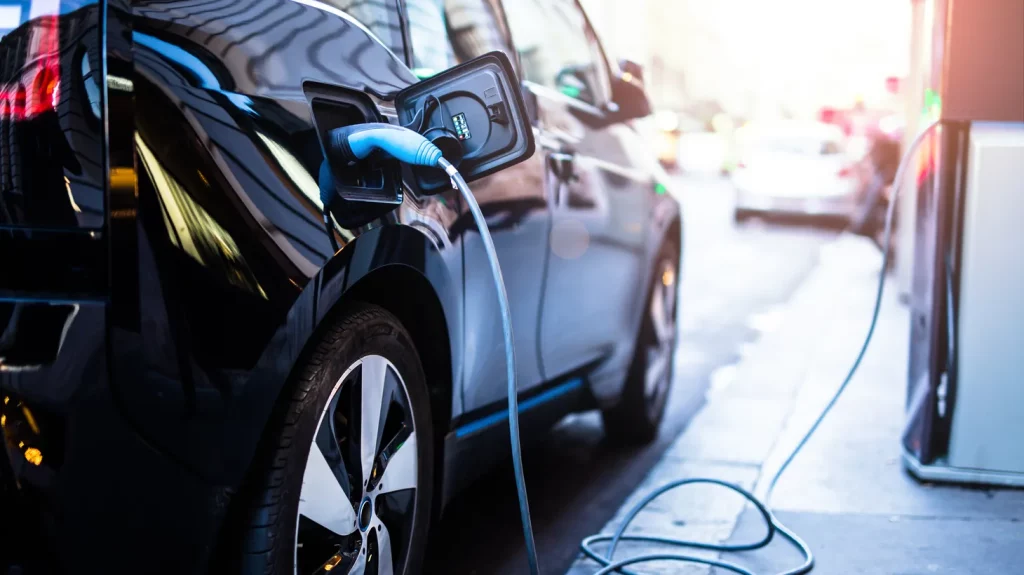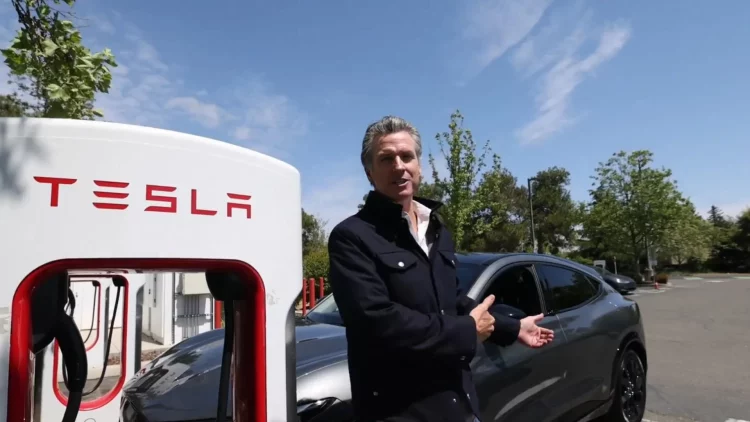Introduction: A Vision for Clean Transportation
In a bold and decisive move, California Governor Gavin Newsom has unveiled plans to rejuvenate the state’s electric vehicle (EV) rebate program, aiming to safeguard the affordability of zero-emission vehicles in light of potential federal cuts to the $7,500 EV tax credit under a renewed Trump administration. As the nation’s largest EV market, California seeks to reaffirm its commitment to a sustainable transportation future, one that promises both innovation and accessibility.
“We’re not turning back on a clean transportation future — we’re going to make it more affordable for people to drive vehicles that don’t pollute,” Newsom declared. This statement encapsulates California’s resolve to continue its leadership role in promoting green technologies, even as the political landscape shifts.
Funding Mechanism: The Greenhouse Gas Reduction Fund
A Sustainable Financial Strategy
The proposed rebate initiative is set to be funded through California’s Greenhouse Gas Reduction Fund, a financial reservoir designed to channel resources from polluters under the state’s cap-and-trade system. This innovative approach highlights California’s ambition to not only reduce emissions but also to ensure that the economic advantages of electric vehicles reach consumers directly.
However, stirring the waters of this initiative is a controversial proposal to impose a market-share cap. This cap threatens to exclude Tesla, the state’s leading EV manufacturer, from the rebate program. With nearly 55% of the EV market, Tesla’s dominance raises concerns about competition and equity in the EV space. In contrast, competitors like Hyundai and BMW hold much smaller market shares of 5.6% and 5%, respectively.
The Controversy: Market-Share Cap and Reactions

Elon Musk Speaks Out
The repercussions of this proposed cap have resonated throughout the automotive industry, drawing pointed criticism from Tesla CEO Elon Musk. Musk has characterized the exclusion of Tesla from California’s rebate program as “insane,” highlighting the tensions between Tesla and state officials. This disagreement threatens to escalate into a broader conflict, particularly given Musk’s prior advocacy for the repeal of federal tax credits as a means to create a level playing field nationally.
In his social media statements, Musk pointed out the irony: “Tesla is the only company that manufactures its EVs in California.” His comments suggest a willingness to reevaluate Tesla’s operations within the state should the proposed rules be implemented, hinting at the possibility of job relocations in response to unfavorable policy changes.
Political Landscape: A Charged Atmosphere
Tensions Between Sacramento and Washington
As California navigates this complex policy landscape, the proposed EV rebate program emerges amid escalating political tensions. Newsom’s public opposition to Trump’s administration figures prominently, with this rebate initiative seen as a form of resistance against federal policies. The rift between Sacramento and Washington might deepen as competition for the future of clean transportation intensifies.
Industry analyst Dan Ives from Wedbush Securities has likened this emerging conflict to a “Game of Thrones”-style power struggle, attributing potential implications for job growth and corporate relocation to California’s already stringent regulatory framework. With high corporate taxes further complicating the picture, the stakes are becoming increasingly high for automakers considering their strategic placements.
Conclusion: Navigating the Road Ahead
A Future in Flux
As California prepares to implement its proposed EV rebate program, the implications of this initiative resonate far beyond state borders. The tension between fostering a competitive market and supporting local industry is palpable, creating a complex tapestry of political and economic considerations. While Newsom’s ambitious plan aims to ensure the continued growth and accessibility of electric vehicles, the exclusion of Tesla from this equation may catalyze a significant shift in the state’s EV landscape.
The decisions made in the coming weeks could alter not only the future of EV manufacturing in California but also set a precedent for how states interact with federal policies regarding clean energy. As stakeholders on all sides await the final verdict on the proposed rebate program, one thing is certain: the path to a sustainable transportation future is fraught with challenges that require careful consideration and collaboration.


































Discussion about this post